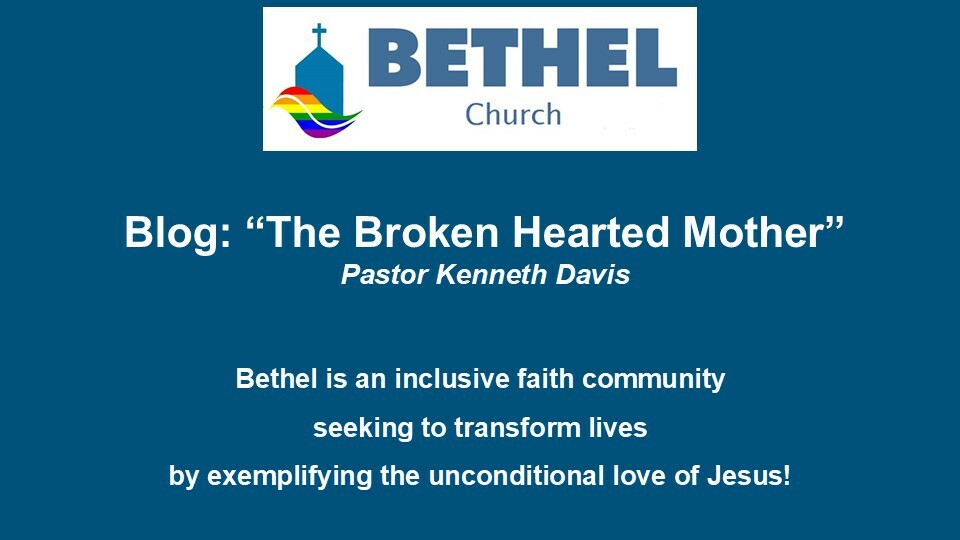The Broken Hearted Mother


The account of Abraham's two sons, Isaac and Ishmael, found in Genesis 21, is not just a tale of familial strife, but a profound exploration of faith, waiting, and the unexpected ways in which God's promises are fulfilled.
At its core, this story is about the birth of two nations, each springing from the loins of one man – Abraham. It's a tale that echoes Charles Dickens' famous opening line: "It was the best of times, it was the worst of times." For one son, Isaac, it marked the joyous fulfillment of a long-awaited promise. For the other, Ishmael, it heralded a period of exile and uncertainty. Yet, in both cases, God's hand was at work, weaving a tapestry far more intricate than human eyes could perceive.
The narrative begins with the miraculous birth of Isaac, the son of promise. After years of waiting, Sarah, well past her childbearing years, gives birth to a son. The name Isaac, meaning "laughter," reflects the joy and relief that accompanied this fulfillment. It's a powerful reminder that God's timing, while often mysterious, is always perfect.
But the story doesn't end there. It quickly pivots to a darker chapter – the banishment of Hagar and Ishmael. This part of the narrative forces us to confront uncomfortable truths about power, privilege, and the human tendency to take matters into our own hands when God's promises seem delayed.
Hagar's story is particularly poignant. An Egyptian slave, she found herself caught in the crossfire of Sarah's desperation and Abraham's acquiescence. Used as a surrogate and then discarded when no longer convenient, Hagar's plight resonates with many who have felt powerless, exploited, or discarded by those in positions of authority.
The text doesn't shy away from the harsh realities of the ancient world. Hagar, as a slave, had no rights, no dignity, and no autonomy over her own body. Her story serves as a stark reminder of the injustices that have plagued human societies throughout history – injustices that, sadly, continue to echo in various forms today.
Yet, it's in Hagar's lowest moments that we witness one of the most beautiful revelations in Scripture. Twice cast into the wilderness, Hagar encounters the living God. In fact, she becomes the first person in the Bible to whom the angel of the Lord appears. In her despair, she names God "El Roi" – the God who sees. This profound encounter reminds us that no one is beyond the reach of God's love and care, regardless of their social status or circumstances.
The story challenges us to examine our own lives and societies. How often do we, like Sarah, attempt to force God's hand or take shortcuts to achieve what we believe is rightfully ours? How often do we, in our impatience or fear, create situations that lead to pain and division?
Moreover, the narrative invites us to consider how we treat those we perceive as "other" or as threats to our own position or inheritance. Sarah's demand to cast out Hagar and Ishmael is a chilling reminder of how easily we can dehumanize those we see as competition or inconvenience.
Yet, even in the midst of human failings and cruelty, God's providence shines through. While Abraham is instructed to send Hagar and Ishmael away, God also promises to make Ishmael into a great nation. This dual promise – to both Isaac and Ishmael – showcases God's ability to work through and despite human shortcomings.
The story of Hagar and Ishmael also teaches us valuable lessons about facing our problems. When Hagar first fled from Sarah's mistreatment, God instructed her to return. This seemingly harsh command actually contained a profound truth: sometimes, the path to transformation lies not in escape, but in confronting our challenges head-on.
This narrative invites us to reflect on our own lives. Where are we running from difficulties instead of facing them? How might God be calling us to return, not to suffer, but to find strength and a new perspective through divine encounter?
Furthermore, the story challenges our notions of who God speaks to and works through. Hagar – a woman, a slave, a foreigner – receives direct communication from God. This serves as a powerful reminder that God's grace and promise extend far beyond the boundaries we often create in our minds and societies.
As we reflect on this ancient tale, we're reminded that the interplay of joy and sorrow, promise and pain, is a normal part of the human experience. The birth of Isaac brought immense joy, yet it was intertwined with the sorrow of Hagar and Ishmael's exile. This juxtaposition mirrors our own lives, where moments of triumph often coexist with periods of trial.
The story also highlights the importance of patience and trust in God's timing. Abraham and Sarah's attempt to "help" God fulfill the promises made led to unforeseen complications. Yet, even in this, we see God's redemptive work. The message is clear: God's promises will come to pass, but often in ways we least expect.
In conclusion, the narrative of Isaac and Ishmael is far more than a historical account. It's a mirror that reflects our own struggles with faith, patience, and human relationships. It challenges us to see the image of God in every person, especially those society might deem as "other." It reminds us that God's plans are often bigger and more inclusive than we imagine.
In the end, whether we identify more with Isaac or Ishmael, Sarah or Hagar, we are all part of a greater story – a story of a God who loves, redeems, and uses imperfect people. Let us walk forward with this assurance, knowing that we too are part of God's unfolding plans.